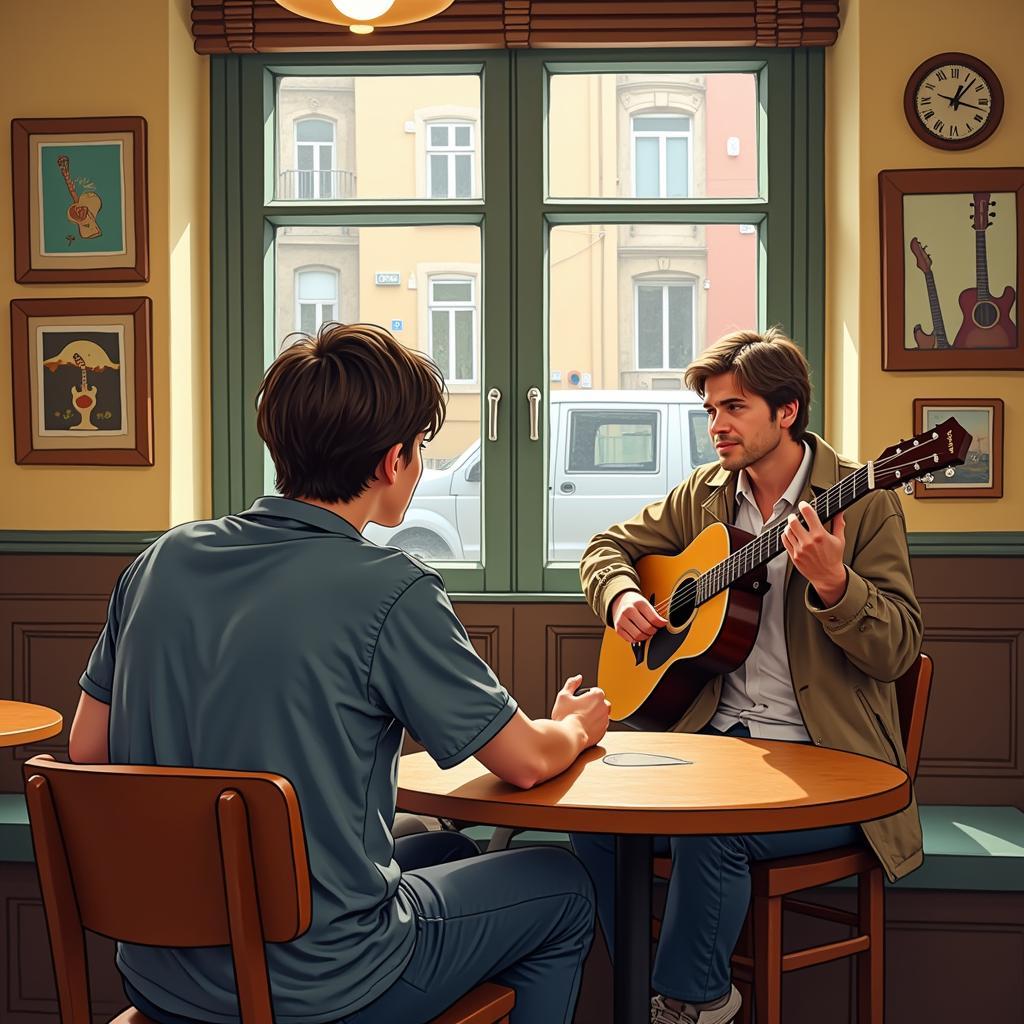Music is often touted as a universal language, a source of comfort, and a powerful emotional outlet. However, for some, music holds no such allure. This essay will explore the phenomenon of not enjoying music, delving into the reasons behind this preference and addressing the challenges faced by those who don’t connect with musical expression.  Not Enjoying Music
Not Enjoying Music
Why Some People Don’t Like Music
The reasons for musical indifference are multifaceted, ranging from neurological factors to personal experiences. Some individuals may have specific auditory processing differences, making the perception of music unpleasant or even painful. Others might simply not have been exposed to a wide enough variety of genres to find something that resonates with them. Past negative associations with music, such as a traumatic event occurring while a certain song was playing, can also contribute to a dislike. Furthermore, personality traits, such as introversion or a preference for quiet and solitude, can influence one’s affinity for music.
Neurological Factors and Musical Preference
Research suggests that certain neurological conditions can impact musical appreciation. For example, individuals with amusia, a neurological disorder affecting musical perception, may experience difficulties recognizing melodies, rhythms, or pitches. This can lead to a lack of enjoyment or even an aversion to music. bài văn giải thích dàn bài chung Understanding these neurological factors can shed light on the complex relationship between the brain and musical experience.
Social Challenges and Misconceptions
Not enjoying music can sometimes lead to social challenges. Music is often a central component of social gatherings, cultural events, and even everyday conversations. Those who don’t appreciate music might feel excluded or pressured to feign interest. They may encounter disbelief or even ridicule from others who struggle to understand their lack of musical connection. This can lead to feelings of isolation and difficulty forming social bonds.
Dealing with the Pressure to Conform
Navigating social situations where music is prevalent can be tricky for those who don’t enjoy it. One strategy is to be upfront and honest about one’s preferences. Explaining politely that music isn’t one’s cup of tea can often diffuse awkward situations. chị dậu thích nhậu Alternatively, focusing on other aspects of the social interaction, such as conversation or activities, can help shift the focus away from music.
Finding Alternative Forms of Expression
While music may not be their preferred medium, individuals who don’t enjoy it often find other avenues for emotional expression and creative outlet. This could include visual arts, writing, sports, or engaging in other hobbies that provide a sense of fulfillment and connection. chầm chậm thích anh lời bài hát These alternative forms of expression can be equally enriching and contribute to a well-rounded life.
Dr. Emily Carter, a renowned psychologist specializing in sensory processing, states: “It’s important to remember that individual preferences vary greatly. What one person finds deeply moving, another may find completely indifferent. There’s no right or wrong way to experience the world around us.”
Embracing the Silence
For some, the absence of music is not a void to be filled, but rather a preferred state of being. The quiet and stillness can be a source of peace, focus, and introspection. Embracing the silence can allow for deeper connection with oneself and the surrounding environment. viết 1 đoạn văn bằng tiếng trung về sở thích
Professor John Miller, a musicologist, observes: “Music’s influence is undeniable, but it’s not the only path to emotional resonance. Other forms of art, nature, and even silence itself can offer profound experiences.”
In conclusion, not enjoying music is a perfectly valid preference. Understanding the various factors contributing to this disinclination and addressing the social challenges it may present can help create a more accepting and inclusive environment for those who prefer a melody-free life. Embracing individual differences and appreciating the diverse ways in which people experience the world is essential for fostering understanding and connection.
FAQ
- Is it normal to not like music?
- Can a dislike of music be a sign of a medical condition?
- How can I explain to others that I don’t enjoy music?
- What are some alternative activities for people who don’t like music?
- Can silence be a positive experience?
- Is there a way to develop an appreciation for music if I currently dislike it?
- How can I cope with social situations where music is a central focus?
Other articles on our website:
Khi cần hỗ trợ hãy liên hệ Số Điện Thoại: 0915063086, Email: [email protected] Hoặc đến địa chỉ: LK 364 DV 08, Khu đô thị Mậu Lương, Hà Đông, Hà Nội 12121, Việt Nam. Chúng tôi có đội ngũ chăm sóc khách hàng 24/7.